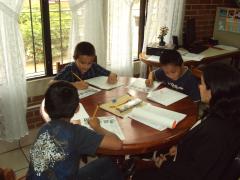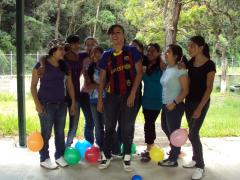Guatemala continues to struggle with high levels of poverty and social exclusion, particularly amongst the indigenous population and in the central belt of the country. Children suffer most from the deprivation that many families experience, and single mothers or very young parents often have great difficulty providing for their children.
The struggle for survival in Guatemala’s “dry corridor”
.jpg?ext=.jpg)
The northern region of Guatemala is one of the country’s poorest, with up to 77 per cent of the population living in conditions of poverty where they are not able to meet basic needs such as water, food, or health care. Baja Verapaz is also one of the departments with the highest incidence of malnourishment in pre-school children.
Part of the reason why people in Baja Verapaz struggle so much is because this department is located in the so-called “dry corridor” of the country, which relies heavily on agriculture but is very prone to extended periods of drought. This can lead to food shortages and malnutrition. Although health authorities provide emergency aid, often parents cannot even afford to travel to centres where such aid is offered.
A lack of hope and stability can lead to violence in the family
Such precarious living conditions are extremely detrimental to family stability. Domestic violence continues to be a big problem in Baja Verapaz, and only in recent years have women begun to denounce acts of violence experienced in the home. Increased efforts to raise awareness of women’s rights and children’s rights in particular are still necessary.
The homicide rate and gang-related violence have also been on the rise in the department. Young people from struggling families are particularly at risk of being recruited as gang members as often they feel that they have no options in life. The solidarity and loyalty offered by the gangs can be very appealing to young people from broken homes.
The work of SOS Children’s Villages here in San Jerónimo focuses, on the one hand, on taking care of children whose parents are no longer able to provide for them. Sometimes parents have problems such as alcoholism or illness, and in the worst cases children are abandoned because the parents are unable to cope; these children need a loving home. Our second aim is to support young people as they make the transition from childhood into adulthood.
What we do in San Jerónimo
.jpg?ext=.jpg)
When young people from the children’s village are ready to move out of the family home in order to pursue further education or vocational training, the SOS Youth Programme provides shared accommodation. With the support of qualified counsellors, the young people can learn to take responsibility, plan their future and prepare for independent adult life.